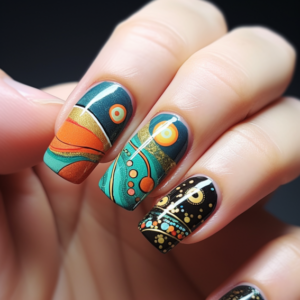Pregnancy is a time of profound change in a woman’s body, and this includes changes in hair health and appearance. Many expectant mothers have questions about how to best care for their hair during pregnancy to ensure it remains healthy and vibrant. In this blog post, we’ll provide valuable tips for maintaining beautiful hair throughout pregnancy while considering the unique needs and concerns that arise during this special time.
1. Balanced Nutrition for Hair Health
Proper nutrition is the foundation of healthy hair. During pregnancy, it’s essential to maintain a well-balanced diet rich in vitamins and minerals. Key nutrients for hair health include biotin, vitamin D, iron, and omega-3 fatty acids. Foods like eggs, leafy greens, nuts, and fatty fish can help support strong and shiny hair.
2. Hydration Is Key
Staying hydrated is crucial during pregnancy. Drinking an adequate amount of water helps keep your hair and scalp moisturized, preventing dryness and potential hair issues.
3. Gentle Hair Care Routine
A gentle hair care routine is essential to prevent damage and hair loss. Consider these tips:
- Use a sulfate-free, mild shampoo and conditioner to avoid stripping your hair of natural oils.
- Be gentle when washing your hair, massaging your scalp with your fingertips to promote blood circulation.
- Use lukewarm water for hair washing, as hot water can lead to dryness.
- Avoid excessive heat styling, such as curling irons and straighteners, to prevent hair damage.
- Use a wide-toothed comb to detangle wet hair, which is more fragile and prone to breakage.
4. Pregnancy Hair Changes
It’s common for women to experience changes in their hair during pregnancy. These changes can include increased thickness, shininess, and reduced hair shedding. However, some women may experience hair thinning or other issues. If you notice significant changes, consult with a healthcare professional to rule out any underlying conditions.
5. Prenatal Vitamins
Many healthcare providers recommend prenatal vitamins during pregnancy, not only for the health of the baby but also for the mother’s well-being, including hair health. Prenatal vitamins typically contain essential nutrients like folic acid, biotin, and iron, which can support hair growth and strength.
6. Avoid Chemical Treatments
Pregnancy is not the time for chemical hair treatments like hair coloring, perms, or keratin treatments. These processes may expose you to potentially harmful chemicals, and the hormonal changes during pregnancy can affect the outcome of these treatments.
7. Manage Hormonal Changes
Hormonal fluctuations during pregnancy can affect your hair. While some women experience thicker and shinier hair, others may face increased oiliness or hair thinning. Be patient and adjust your hair care routine accordingly. If you’re concerned about hair loss, consult with a healthcare professional for guidance.
8. Scalp Health
A healthy scalp is the foundation of healthy hair. To maintain scalp health during pregnancy:
- Keep your scalp clean but avoid overwashing, as it can strip your scalp of natural oils.
- Use a mild, pH-balanced shampoo to prevent scalp irritation.
- Consider a scalp massage to relax and stimulate circulation.
9. Postpartum Care
After giving birth, it’s normal for some hair shedding to occur. This is due to hormonal changes, and it’s usually temporary. Continue to prioritize a healthy diet and gentle hair care to support your hair’s recovery postpartum.
Conclusion: Nurture Your Pregnancy Hair
Caring for your hair during pregnancy is an essential part of self-care during this special time. By maintaining a balanced diet, using gentle hair care products, and embracing the natural changes that come with pregnancy, you can help ensure that your hair remains healthy and vibrant throughout this incredible journey into motherhood.



